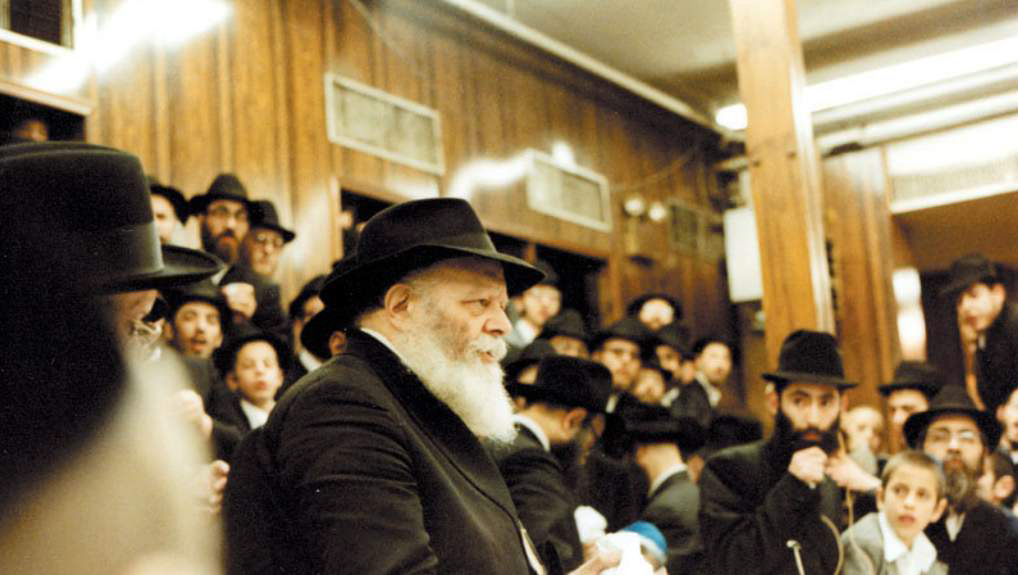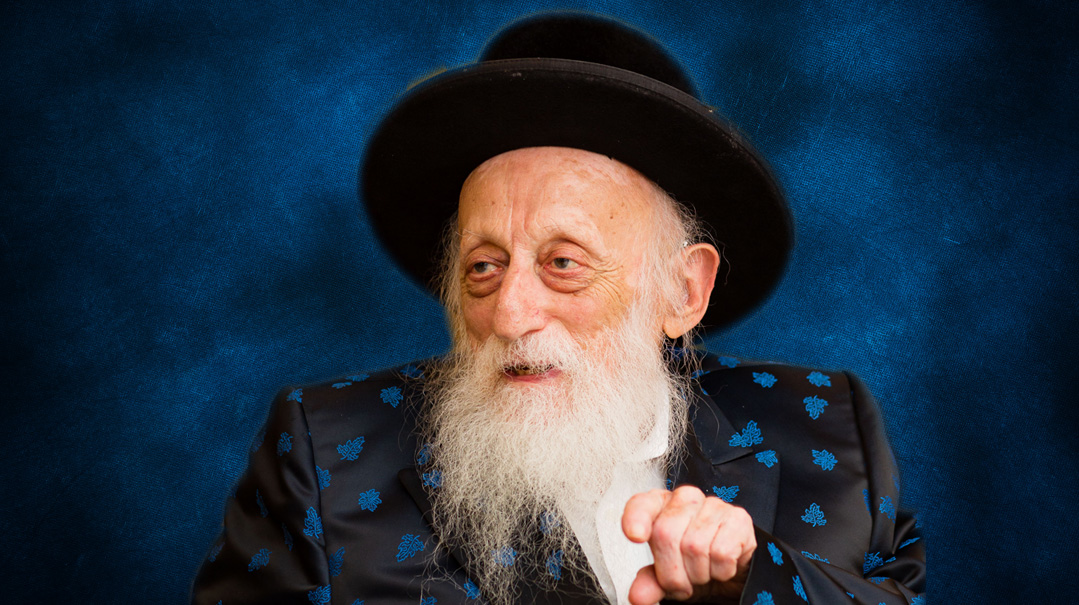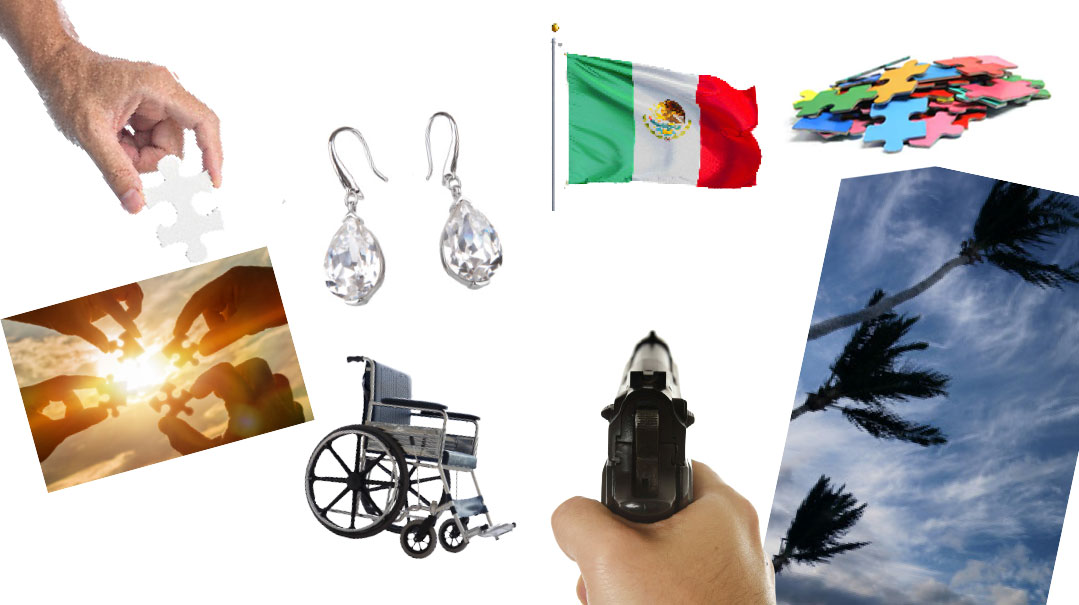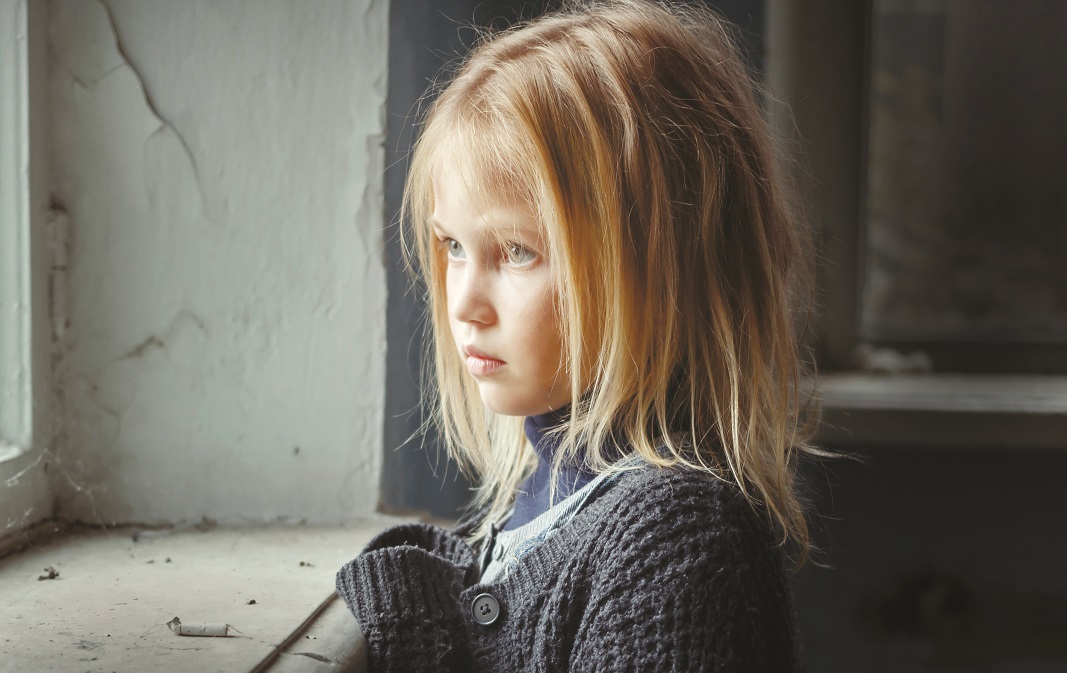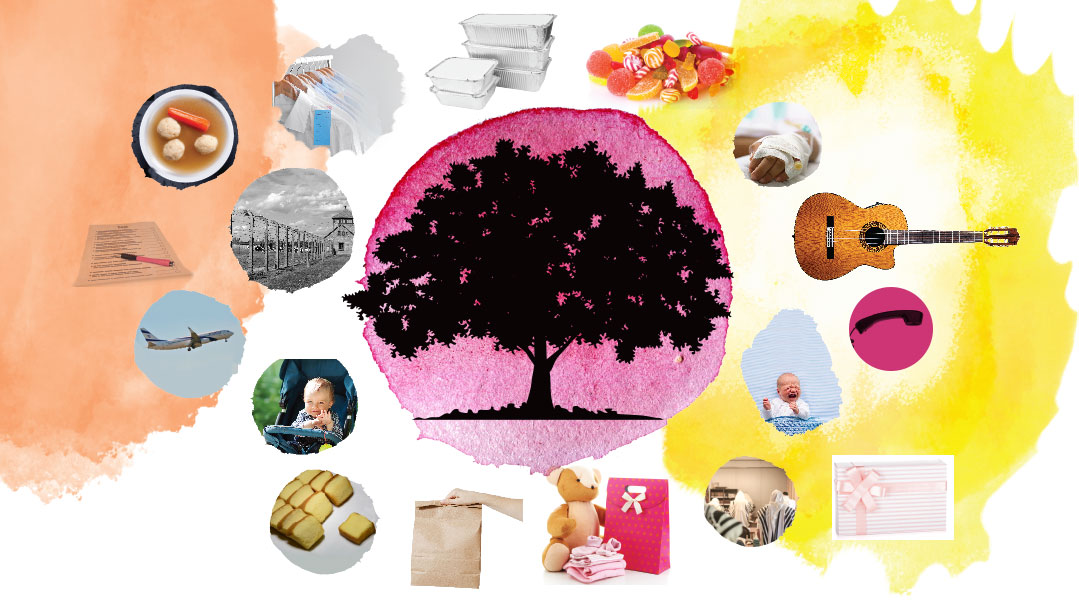Fruit of Kindness

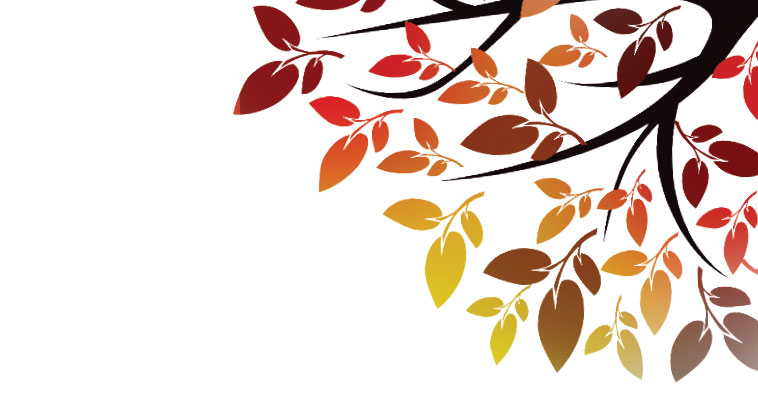
Gifted
S.Y., Maryland
I
knew Leah socially, but she was more of an acquaintance than a friend. She would be my daughter’s third-grade English teacher in the coming school year. Yet here she was, sitting in my living room on an August/Av afternoon, gathered together with people who are my closer friends.
Leah was paying me a shivah call as I mourned for my husband, who died suddenly and much too young. I talked and talked about my wonderful husband, Avraham. He was a talmid chacham. He was such an involved father. He had special devotion to his talmidim. He was a thoughtful husband who prepared my wicks every Erev Shabbos and made eye contact with a private smile for me while singing Eishes Chayil.
Sobbing, I explained to the room that Avraham and I were married on Rosh Chodesh Cheshvan, and that ever since, on every single Rosh Chodesh, he’d given me a small gift. A box of tea. A book. A box of chocolates. A music CD. A pillow. A coffee mug. A soft bath towel.
Each gift with a sweet note about how he appreciated me.
It was his small kindness to me, his wife. Avraham’s way of letting me know I was special to him. In my sorrow I told the gathered crowd how much I would miss it.
Shivah passed and Rosh Chodesh Elul arrived as my family struggled to prepare for the start of the new school year. We stepped outside our door to shop for school supplies and found a gift bag on the door step.
Leah had remembered what I said about Avraham giving me Rosh Chodesh gifts.
She had left me a package with a cute mug and a note for good wishes in the coming school year. Month after month, Leah sent me a special Rosh Chodesh gift. A chocolate bar. Some fun spices. Dried fruit. Boxes of tea. A pom-pom to embellish my purse. Flower bulbs for my garden.
Each gift with a note of encouragement and friendship.
Leah’s little kindnesses healed a small part of my heart. And she became much more than an acquaintance. She became a friend.
Reality Check
Eeta Travis, Baltimore
I
was coming home late and totally exhausted. I had asked the kids to make supper, tilapia with some sides. When I came home, the house smelled amazing, just as I’d imagined for the past couple of hours. I was famished and ready for a hot, delicious meal.
As I opened the pan and saw the fish in a beautiful tomato sauce with peppers and onions, I had a dreadful thought. Could they possibly have fried the onions in a milchig pan, and combined it with the tomato sauce leftover from a fleishig meal? Please G-d, no! No, no, no! But it was just as I feared.
I called up Rabbi Dovid Heber, almost in tears, and told him the whole story. He told me that indeed, the food was not kosher. I barely held back my tears as I thanked him and hung up — and then I really let it loose. I told the kids I was going to get some pizza and just cried it out for a few minutes. Then my cell phone rang. It was Rabbi Heber.
I really didn’t feel up to it, but I answered the phone.
Rabbi Heber said, “That probably was your supper.”
“Yup.”
Then he continued, “I have this fund for people who ask sh’eilos about their supper and then can’t eat it because of kashrus reasons. You probably could use a pie or two now that you don’t have supper.”
I was so touched that I started tearing up again. I protested, sure he’d made up the fund on the spot to be nice, and said that I really appreciated the thought but no, thank you. He was equally insistent and asked for my address, which I ended up giving to him.
The check arrived two days later, and I kept it to remind me of the special kindness of a rav who went beyond the sh’eilah, and gave chizuk to a single mom in a new community, who was trying to juggle it all and was having a bit of a breakdown.
I still have that check.
Not alone on Mars
Chani Muller, Yerushalayim
T
he weeks my daughter spent in respiratory rehab after getting her tracheotomy felt like a sojourn on another planet.
The small dim room, with curtains around the cribs and monitors up on the walls and incessant beeping, was real life. I vaguely remembered that once I had also done regular things like take my kids to the park and work and prepare meals, but all that was weeks — and a lifetime — ago.
I came home one day after spending hours by my daughter’s bedside and just sat outside, looking up at the bright blue sky and mumbling to my neighbors, “But it’s so light outside, but it’s so light.”
There came a point where I was checking in with a friend regularly, “Do I still sound normal?” I so much didn’t want to just retreat into a bubble of my own, but I was living in another world that my friends, family, and neighbors didn’t share.
Which is why my friend Yaffi’s visit was so meaningful to me. She had been out of town while this drama was happening, and as soon as I filled her in, she immediately offered, “So do you want me to come with you one day?”
I was surprised and touched by her offer. Spending time in respiratory rehab isn’t most people’s idea of a good time, and the facility wasn’t anywhere nearby. But I gratefully accepted and we made up to meet later that week.
We met, I brought her into the unit, and if she was overwhelmed at being in a ward full of kids on trachs and ventilators, she did a good job at hiding it. I headed to my daughter’s bed and the nurse came over to me.
“Ready to learn to suction?” he asked.
“Uh, I guess so,” I said. If we wanted to eventually get out of here, I would have to get over myself and learn to care for her properly, suctioning and all.
“So, like this,” he said. “You put on a sterile glove.”
I slipped open the wrapper and tried to put on the glove, but couldn’t find the opening.
“Here you go.” He showed me how to get my hand into the opening on top.
“Okay, so now you open the catheter.”
I started doing that when he stopped me. “No, no, you touched the catheter with the glove! Now the glove isn’t sterile anymore.”
I sighed and took out a new glove. This was more complicated than it looked. This time I knew how to get the glove on, at least. The nurse showed me how to put the catheter under the arm with the glove, and then use the other hand to open the wrapper. Finally, I got it. He took pity on me and said the lesson was over. Actual suctioning would wait for next time.
I looked at Yaffi, standing quietly next to me, and felt overwhelmingly grateful for her presence. How was I going to explain to anyone what had just happened? So I tried learning how to suction and keeping the catheter sterile turned out to be more complicated than I thought? It sounded pathetic. But Yaffi got it. She was right there.
“Do you see why I feel like I live on another planet now?” I asked.
“Totally,” she said. “This place is like Mars, the world is Earth, and the issue is you spend most of your time on Mars.”
Something settled into place inside me. Someone got it. I was spending way too much time on Mars, but a friend had been willing to follow me there.
Chosen
Shaindy David, Brooklyn
N
inth grade was a tough year for me. I came from a small school outside of Brooklyn, with one class per grade. I’d been friends with the same girls since kindergarten. Now, I was starting high school on my own, in a huge school with at least four parallel classes per grade, mostly made up of girls who’d been together since they were in kindergarten. I dreaded every morning when I’d have to spend a long bus ride anticipating the lonely day ahead. I was a shy girl, so trying to break into a clique was like trying to climb Mount Everest. I could survive during classes, but then there was recess and lunch. I just didn’t have the confidence to approach any of the other girls and start a conversation, let alone build a great friendship. I was a literal nobody.
One day sticks out in my mind, not a sudden life-changing moment, but a tiny little seed that was planted. It didn’t start sprouting until many years later, but the potential for life was there. My school principal had decided to send some students from our high school to be present at the levayah of a chashuve member of the community. She asked Mrs. G., our Jewish history teacher, to choose five girls from our grade of 100 students to attend the levayah. She asked that the students chosen be special girls, girls who’d take something meaningful out of the hespedim, and specifically requested that the girls chosen not be the usual superstars from the grade who were popular, high-achieving academic geniuses.
I was one of the girls chosen. Out of 100 girls, Mrs. G. saw something in me that I couldn’t see in myself. To this day, I can’t remember anything that was said at the levayah — but I remember being chosen. This wasn’t some earth-shattering, life-altering experience. I still had many challenging years ahead of me. And I’ve since been the recipient of many kindnesses over the years, as have most of us. But when asked for the most memorable kindness someone ever did for me, this story with Mrs. G. comes to mind immediately. It’s there in the background whenever I take some small step in my avodas Hashem, every time I push myself further than I believe I can go. That tiny seed planted almost 25 years ago is sprouting.
Lunch’s lease
Ilana Keilson, Far Rockaway
I
was a mess. There was no getting around it.
After many years of teaching, I’d decided to take a year off. With eight children at home, the younger ones waking me at the crack of dawn and the older ones needing me late into the nights, the demands of marking and preparing were proving impossible.
Days after that decision was made, my mother was diagnosed with cancer. A week later, I discovered I was pregnant. Then, incredibly, my mother-in-law, too, was diagnosed with cancer.
I sat on a low chair, disheveled, on my 40th birthday, then gave birth just days before Pesach. Hashem sent several malachim in the guise of relatives to help me through those weeks. One aunt attended the birth. Another delivered crates of homemade Pesach food. My single sister from Israel not only served as baby nurse, but helped with shopping, kashering the kitchen, and entertaining the kids.
Pesach passed. My sister returned to Israel. Life went back to semi-normal — for everyone but me. I was left home. Alone. With a colicky, miserable baby. All day, Gavriel would scream unless he was in my arms. I “wasn’t working,” but neither could I keep home.
The house was a perpetual mess. I never went out except to go grocery shopping or take Gavriel for a walk. I rarely showered or ate a decent meal. Needless to say, I never put on makeup or a sheitel. I spent long, endless days with no one to talk to, accomplishing nothing, willing for the phone to ring or a text to come in, for naught. No one ever called or texted. I had faded into oblivion. I was miserable.
Then one day I bumped into my friend Shiffy. Somehow, in a minute’s conversation, Shiffy understood what I needed. She invited me out for lunch. I accepted. I don’t remember how I pulled it off. Who watched the baby? I have no idea.
I got dressed properly for the first time in months. Shiffy and I spent a glorious hour together, and I emerged a different person. With her empathy and sincerity, she had given me the permission I needed to take care of myself.
I started bringing Gavriel to a babysitter for a few hours a day, even though I “wasn’t working.” Slowly, I made some other changes as well. But to this day, I credit Shiffy with giving me a new lease on life.
Caring at the Cash Register
C.N., Monsey
W
ith my toddler and newborn in tow, I ran into the grocery for “a few items” one Erev Shabbos, and grabbed a basket. As any woman could’ve predicted, my basket was soon overflowing, as was the bin under the stroller. Dropping the basket in an inconspicuous location near the register, I finished my shopping and headed to pay, leaving the basket a couple of aisles away.
A man with a long, gray beard scouted out the lines and approached the line where I was waiting. Wanting to be courteous, I gestured to my stroller bin and informed him that I had another basketful of items as well. Did he move to a different line, as I might have done in his place? No, and in his reaction, I glimpsed chesed as it’s meant to be done. Without missing a beat, he scanned the area briefly, found my basket, and heaved it right over onto the counter, all with a smile.
A small kindness? Maybe. But it touched me, this memory of a man who didn’t get caught up in the daily grind but had the presence of mind to selflessly help out another.
In my shoes
R.M., Brooklyn
L
ife can be complicated for a tween whose parents are divorced. I spent most of sixth grade living with an aunt, dealing with my complex home life. That part I took in stride. What I couldn’t stomach was the hand-me-down issue.
With money tight, my mother was more than grateful for the hand-me-downs a distant cousin gifted us. To me, those bags epitomized all that was wrong in my world. I managed to swallow my pride and accept the clothing, but nothing was as humiliating to me as the Shabbos shoes she included in the package. How I begged and pleaded for new shoes! But my uber-practical mother couldn’t see what was wrong with a perfectly serviceable pair of Shabbos shoes, even if I was their second owner.
My aunt Aliza, whose house I was staying at, saw my angst and quietly decided to act. One bright morning she kept me home from school, and out we went. I still remember the exhilarating feeling of stepping into the posh shoe store I always used to pass and gaze at longingly, and being told to pick any (full-price!) item from the display. I could barely believe my good fortune. Oh, how I loved the shoes we purchased that day. I hoped I would never outgrow them, and loved to simply stare at them.
I’ll never be quite sure if it was the style I was so enamored with. Perhaps it was simply the joy of a little girl who, for one day, felt special, cherished, and most of all, normal, when everything else in her life was off-kilter. That gift was more than a pair of shoes. It was the gift of dignity, a spark of kindness that brightened a dark time in my life.
Aliza has long since forgotten that incident, but her special deed still warms my heart.
Gift of Time
Joanna Wiseman, Yerushalayim
D
ecember, four years ago. I was in nursing school in Jerusalem. My mother had cancer in London. We knew by then that she wasn’t going to get better, but we thought we had some time left — six months, maybe more. Then, suddenly, we didn’t. On Monday she was hospitalized. I needed to go to England.
I had given up my job in order to study, and was on a very tight budget. How would I find the money for a flight?
Tuesday morning, I ran down to the school’s office.
“My mother is getting worse. I’m probably going to England soon. I don’t know for how long. I’ll let you know as soon as things become more clear.”
I ran out before anyone had a chance to respond.
First thing on Wednesday, I was called down to the office.
“You left us all rather shocked yesterday. Could you sit down and tell me more about it?”
So I did, as much as I knew. She reassured me that in the circumstances I could take off as much time as necessary. And then…
“Some of the other girls came and spoke to me yesterday. Did you know there’s a chesed fund available to the students for emergency situations? No? Well, they asked me to access it for you. So… this is for you.”
She handed me an envelope.
I went out and looked inside the envelope. Money. Enough money, and a little bit over, for a ticket to England.
My first reaction was to be overwhelmed. Then grateful. Then I started to wonder. I had never heard of this chesed fund. If the money had really come from a chesed fund, wouldn’t it have been a check? Or at least a few high-denomination notes? The envelope in front of me was stuffed with a miscellaneous selection of 200, 100, 50, and 20 shekel notes, in no particular order. Was it possible that the girls — and maybe the staff — had turned themselves into a chesed fund and had all donated what they could to make sure I could leave without any delay?
Thursday, the next day, I flew to England. My mother was niftar on Sunday night. I still don’t know the real source of the money. But wherever it came from, those girls had given me the priceless gift of three last days with my mother.
Calender of Caring
T.L.
I
t was about three years before my eldest son’s bar mitzvah, and of course I was already planning.
All was going well until I realized that a classmate of his shared the same parshah. I immediately called the boy’s mother and asked if her date was set, because if so, I’d pick a different parshah for my son. While she was surprised that I was planning so far ahead, she told me that we could make the bar mitzvahs on the same Shabbos: The boys in her neighborhood would attend her son’s bar mitzvah, and the boys in my neighborhood would attend my son’s bar mitzvah. I explained that since only four boys lived in our area, I’d prefer to change the date so that my son could have his class at his simchah.
At this point, she told me not to worry; she said that she’d made other bar mitzvahs for her older sons and since this was my first simchah, I should pick the parshah and she’d make her son’s the following week.
Even today, almost seven years later, and after making three of my own bar mitzvahs, I cannot believe how she generously put my needs in front of hers and her son’s. Baruch Hashem, I’ve had numerous kindnesses done for me and my family, but this is one that I think of often.
Teenage Teachers
Deena Fenster, Brooklyn
I
t’s 2017, I am nearing my 25th birthday, and marriage is nowhere in sight. Pumping my energy into my high-school students is the one thing that keeps me going — until I go home and face my reality.
It’s one of those nights. I crack open an eye at 1:06 a.m. to find myself in bed, fully clothed, lenses and all. Oh… right. I vaguely remember falling into bed at seven, too exhausted to get through the night’s to-do list, and now I have to get up. But I can’t.
I reach for my phone to see what I’ve missed and see the text from Zahava.
Was just talking 2 my cuz Miri, ur student. She luvs u!! Obsessed!
I smile. Miri’s cute. Zahava’s probably still up, I’ll respond.
Awww, thanks 🙂
The response comes immediately.
Hello ur students crush u, they’re determined to marry u off!!
I roll my eyes. Oh, the 16-year-olds who think it’s so simple…
Yeh, what are they gonna do, call the shadchanim on Miss Fenster’s behalf? Rrrright!
Typing…
No rlly! Said the class used to talk nonstop during a diff teacher’s class, but they ttly stopped. As zechus for u 🙂
Huh? My students? Those adorable, garrulous, iconic millennials, think about me… as a person? Those thoroughly pampered, sometimes idealistic, awfully lovable teens, the ones who couldn’t stop kvetching when I announced today’s pop quiz… they would do that for me?
I try to picture the scene: Shana Becker getting up from her desk during recess, announcing, “Guys, shah, listen! We must stop talking by Hershfeld — we need Miss Fenster to get married! Everyone, I’m stopping today. And seriously, if I can stop, you all can.”
They’d thought of me. They’d done this for me.
I put my phone down. I can’t stop the warmth that spreads through my chest and up to my cheeks, and I smile. They care…and maybe they’re not the only ones.
Still a little groggy, I stretch my legs, rubbing this morning’s mascara from my eyes. I get out of bed. I don’t know what the morning will bring, and the future is still a giant question mark, but for tonight, I can face another tomorrow.
Full freezer, Warm heart
N
ight. All four children are finally sleeping. Including one nonstop, curly-peyos’ed three-year-old with autism. I spend my days in bed (or more accurately, on bed) as I wait out a tough pregnancy. My marriage is very shaky, as my mentally ill spouse refuses treatment and makes life miserable for all those around him. I often feel alone and forgotten.
A ray of light. I open my freezer and behold rows of foil pans, neatly labeled.
I remember the phone call this afternoon. My dear friend and sister-in-law Zippy called, and in her usual placid manner, she informed me that she was in town and I should make sure there was room in my freezer. Shortly afterward, the doorbell rang. In walked my brother and his wife with piles of 9x13s neatly labeled — suppers and components of Shabbos.
“I wish we could be here on a daily basis to help out,” said Zippy, in her understated fashion. “But since we’re physically far, this is what we can do.”
After safely depositing the pans, we hugged and they left.
Twelve years later, I can still picture that full freezer and connect to that sensation of warmth and caring. At that point in my life, concrete reminders of people’s presence and support in my life were critical. Anytime I was feeling really low and alone, a short stroll to my freezer and a peek inside were all it took to remind me that people care and want to help out, if only they know how.
—Chanie Berl, Brooklyn
Support from Behind the Curtain
—Chumi Orner, Far Rockaway
I
t was the sixth night of Chanukah, and I had just delivered my third child, a baby girl. The midwife peered at the baby curiously, then converged with a group of nurses. I innocently asked if everything was all right, but it didn’t dawn on me that anything could really be amiss.
The midwife turned to me and said matter of factly, “It seems your baby has Down syndrome.”
In one second my world changed forever.
She went on to show me the signs my baby presented with, which had aroused her suspicion, but I was not emotionally present. I felt removed from my body, as if I were watching the scene unfold from above.
I cried, questioned, and tried to make sense of the situation.
As much as I struggled with my new reality, I unequivocally accepted the challenge. I held my baby, imperfections and all, and told her that she was safe with me, that Mommy will always be there for her and love her
After an hour I was moved to the mother-baby unit, where I was surrounded by other new mothers. I keenly felt the pain of being different, of being the one who didn’t have a “normal” baby.
During my first night there, an aunt and uncle came to visit at midnight — being parents of a special child themselves, they came to offer support. The next morning a cardiologist stopped by my room to notify me that an echocardiogram was done on my baby and the results indicated she had an atrioventricular canal defect. He patiently drew diagrams to explain to me her condition, but the only part that remained in my mind was the fact that my precious, innocent baby girl would be needing open heart surgery in the coming weeks. If I thought I couldn’t handle the first diagnosis, this one sent me into a new wave of despair. I cried and cried as I told family this newest update.
Much of my time in the hospital was spent making calls to family and friends.
Each call brought a fresh round of tears. My friends and family were unbelievably supportive and strong.
We had many visitors during our stay in the hospital and many emotions passed through that doorway. Denial, grief, and acceptance. Each family member worked it through at his own pace.
I was the recipient of many acts of kindness during that time period. But what touched me so deeply was what happened on the last day of my stay, when my roommate was packing up to go. I was so preoccupied and entrenched in my pain that she was the last person on my mind.
But before leaving, she courageously stepped behind the curtain and bravely entered my world.
“I know you don’t know me and we’ve never spoken,” she said. “But before I leave, I wanted to say hello to your precious malach. I want you to know that all this time, I have been crying along with you. I wish you loads of nachas.”
Wherever you are today, my roommate from so many years ago, I want you to know that you stepping out of your comfort zone, both figuratively and literally, meant so much to me. Thank you.
Path of Kindness
Chaya E., Cleveland
I
t was one of those wintery days when it snowed just a bit too late to cancel school. The driving was terrible. Mounds of snow from previous days were piled at the side of the road. Cars were sliding all over the road and getting stuck in the snowbanks.
I had been out to pick up my younger kids from school. When I finally pulled up to my house, I realized that I had no idea how to get my kids, aged four, two, and seven months, out of the car and into the house. The driveway was impassable, and the front of the house was unavailable. My husband would not be home for hours. My only option was to park across the street and somehow get the kids over the waist-high snowbanks, onto the snow-covered path that led to the house, all while making sure no one fell into the street.
I took the kids one at a time, struggling to reach over the snowbanks. By the time I got the kids across the street, the two older kids had fallen in the snow. They were freezing and crying. I was almost in tears myself. Then, I had to climb over the mounds of snow myself and carry each kid one by one into the house. We finally got into the house and tried to warm up. I felt so cold and alone.
Around a half hour later there was a knock at the door. It was my father’s close friend and longtime chavrusa. He was holding a shovel. He told me that he saw me having a hard time bringing my kids into the house so he shoveled a path for me from the side door to the street.
It is now ten years later and that chesed still warms my heart.
There is so much chesed in Klal Yisrael, so many organizations and initiatives, and all of them are so important.
However, sometimes, chesed means looking out the window, seeing a need, and quietly, without fanfare, coming to help.
Still his Student
Leah Greenburg
A
year ago we made the heartbreaking decision to pull our son out of yeshivah. His disabilities were too many for our small out-of-town school, and so, with a heavy heart and many, many tears, we enrolled him in a local public school, where he would get the services he needed to become as successful as possible. Baruch Hashem, he is thriving there, and we can clearly see it was the best decision for him.
There’s always a constant worry, though, in the back of our minds. What will be when he’s older? Does he have a good taste for Yiddishkeit? Will he still observe all the mitzvos when he’s older?
This past Chanukah, as he watched all his siblings head out to their teachers’ houses for Chanukah parties and chagigahs, our special child called the man who would have been his rebbi had he stayed at the yeshivah, and asked if he could come to his party. (“Oh, how embarrassing!” I thought, when I discovered what he’d done.)
Not only did the rebbi say yes, but our son came home stuffed to the brim with nosh, clutching his precious Chanukah gelt from this rabbi who’d never even taught him, his eyes glowing.
Somehow, I think he’ll always have a sweet taste for Chanukah.
Take a Seat
S.R., Brooklyn
S
ix chairs, metal with vinyl seats, around my table. It might sound silly, but they had a big impact.
I was the child of a messy divorce, orphaned of her father, and I was also a kallah. My mother, who had remarried some years before, was not yet financially secure, and it was a big deal that she was covering many of the wedding expenses. But someone needed to fill in the gaps, and that someone was sometimes me. At the time, I was in school and working, and I was more than overwhelmed trying to figure out how to buy myself a sheitel, keep up with homework, get the housewares I didn’t receive at the shower, and prepare for a new life — for what I hoped would be a healthier marriage, a healthier life, stability.
I went to secondhand stores to try to find furniture, found people giving away couches, was content with hand-me-downs. It was the lack of normalcy, the missing items, that I feared. A couple weeks before the wedding, I’d found a secondhand table, but I had no chairs. This sent me into a panic. What would we sit on?!
This was before the Internet became so popular; it didn’t occur to me to Google or order some chairs online, so I called my rav. By then, I was beside myself. I didn’t know where to turn. He asked me whether someone could help me buy them, but I knew with full certainty that the answer was no — I felt like I’d called in every favor already. He told me he’d work on it.
Maybe it was the next day, maybe it was a couple hours later, but he called me and said that someone was giving me six chairs as a wedding present. To this day, I have no idea who it was. All I know was that we used those chairs: We had weekday meals and Shabbos meals and hosted guests on those chairs. They made me feel like a mensch. They made me feel like people cared, and that it wasn’t all on my head, and that maybe this would be a new life after all.
(Originally featured in Family First, Issue 626)
Oops! We could not locate your form.







